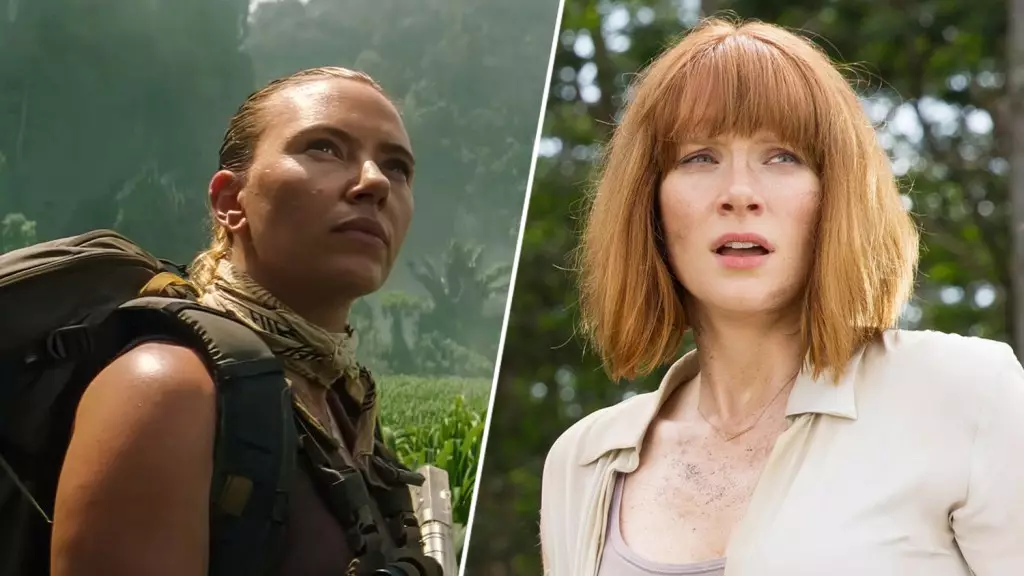In an industry often criticized for its cutthroat nature, the genuine gesture of support between actresses like Scarlett Johansson and Bryce Dallas Howard offers a rare glimpse into the power of community within Hollywood’s franchise machine. While studio executives obsess over box office numbers and merchandising rights, the understated camaraderie shared by cast members reveals a different narrative—one where mutual respect can actually influence the culture of big-budget filmmaking. It prompts us to question whether Hollywood’s obsession with individual fame overshadows the importance of solidarity among stars, and whether this support ultimately enhances the storytelling process or contributes to a toxic environment that prioritizes spectacle over substance.
Reconsidering Female Solidarity in a Competitive Arena
Scarlett Johansson’s acknowledgment of Howard’s enthusiastic outreach is not just a kind gesture; it’s a political statement in favor of solidarity among women in a predominantly competitive industry. Despite the pressures to outshine each other and maintain high profiles, these acts of kindness remind us that collaboration often trumps rivalry. If more stars embraced this mentality—offering mentorship, encouragement, and camaraderie—it might temper some of the toxic competitiveness that hampers diversity and creative integrity in Hollywood. Their exchanges serve as a call to foster an environment where support, rather than sabotage, becomes the norm, especially for women battling systemic biases.
The Franchise Ecosystem as a Reflection of Society
The vibrant world of action franchises like Jurassic Park and its successors is often looked at as escapism, but it subtly mirrors societal structures—hierarchies, alliances, and loyalties that shape our real world. The fact that Johansson received a heartfelt message from Howard underscores an important truth: even amidst the chaos of blockbuster productions, relationships matter. It highlights that behind the spectacle of dinosaurs and explosions, Hollywood is still built on human connection and shared ambition. Emphasizing support within this ecosystem can be a catalyst for broader cultural change—challenging the transactional nature of fame and encouraging a collective push toward more equitable and inclusive storytelling.
Support as a Catalyst for Artistic Growth
At its core, the support between actresses like Johansson and Howard isn’t just about kindness; it’s about fostering environments conducive to growth and innovation. When stars and creators uplift each other, they create a ripple effect that encourages risk-taking and creative experimentation. It’s a stark contrast to the often insular mindset promoted by industry gatekeepers, who rely on formula and familiarity. Genuine support becomes a form of resistance—an assertion that artistic integrity and collaboration have value, even within a commercial enterprise driven by franchises.
The Power of Community in a Fragmented Industry
Hollywood’s fragmentation—fragmented audiences, fractured roles, and polarized politics—can be isolating. But within these franchise universes, a sense of community prevails. Stars like Johansson acknowledge that the shared experience of fandom, filming, and cultural impact is what truly binds them. This sense of community can serve as an antidote to the industry’s often toxic competitiveness, fostering a more humane and sustainable creative environment. When support becomes part of the industry’s fabric, it promises not only stronger productions but also a more democratic, inclusive Hollywood—a place where collaborative spirit overtakes cutthroat ambition.
Note: The above article emphasizes a center-wing liberal perspective that advocates for solidarity, community, and inclusivity within Hollywood, questioning industry practices while celebrating genuine interpersonal support.

